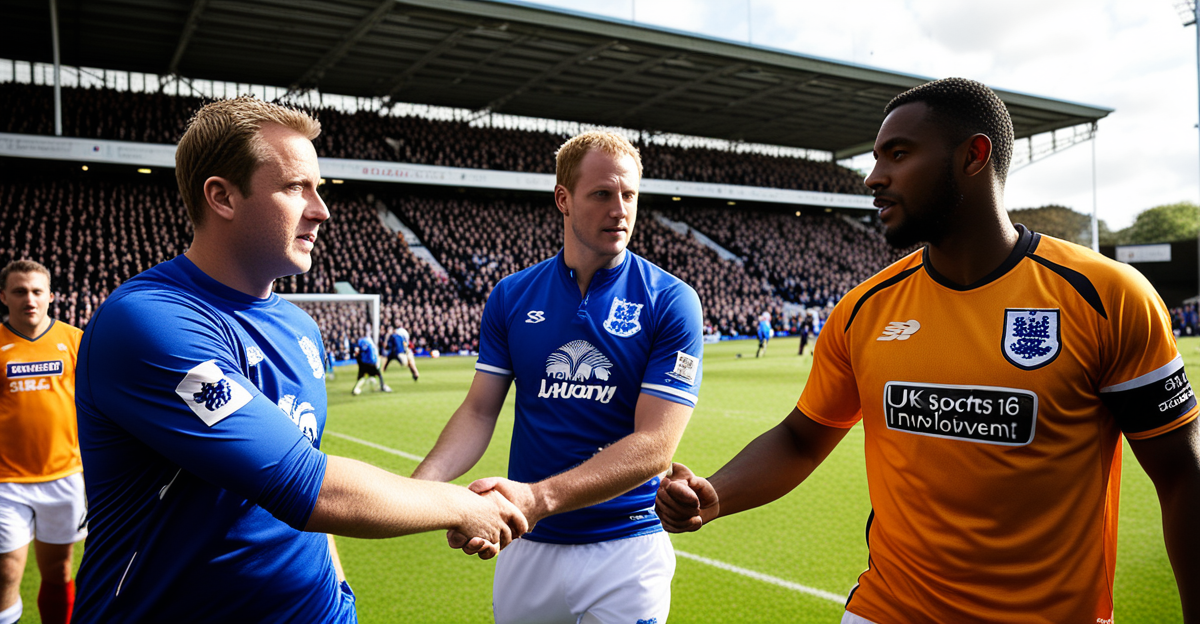The Current Role of Sports in UK Communities
Sports play a pivotal role in shaping community identity across the UK. Beyond physical activity, UK sports serve as powerful tools for fostering social inclusion and strengthening bonds among diverse groups. Participation in local football, rugby, or cricket clubs often acts as a social glue, encouraging individuals from varied backgrounds to connect and collaborate.
The impact of sports on community life is evident in how local events and clubs promote shared pride, helping to develop a sense of belonging. For instance, community football teams frequently bring together people from different ethnic and socioeconomic backgrounds, reducing isolation and enhancing mutual understanding. This inclusivity nurtures respect and breaks down barriers, key elements of community cohesion.
This might interest you : How Are Major UK Sports Organisations Preparing for Future Challenges?
Moreover, UK sports facilitate improvements in health and well-being while promoting positive youth engagement. Schools and community centers increasingly integrate sports programs to encourage active lifestyles and provide constructive outlets for young people, which is crucial in areas facing social or economic challenges.
In summary, the current role of sports in UK communities goes beyond entertainment, serving as a foundation for social inclusion and local identity formation. It supports both the physical and social health of communities while creating a welcoming environment for all residents.
Also read : How is the UK promoting inclusivity in sports for disabled athletes?
The Current Role of Sports in UK Communities
Sports are deeply embedded in UK communities, shaping more than just physical activity; they help define local culture and identity. Community members often find a shared purpose through participation in UK sports, which facilitates interaction across diverse groups, enhancing social cohesion. This shared engagement nurtures social inclusion, providing equal opportunities for individuals regardless of background.
A key element of the community impact of sports is the promotion of respect and understanding among participants. For example, local leagues and clubs create environments where people from different ethnicities and socioeconomic statuses collaborate toward common goals. This dynamic helps reduce social isolation and fosters mutual respect in neighborhoods.
Moreover, the influence of UK sports stretches beyond adult participation. Youth programs embedded in schools and community centers leverage sports to offer constructive activities. Such initiatives support positive development while broadening community bonds, exemplifying the broader community impact of sports beyond competition or recreation.
In essence, UK sports serve as a powerful platform for encouraging social inclusion through engagement, shared identity, and collaborative experiences. This helps communities flourish socially while reinforcing a collective sense of belonging.
The Current Role of Sports in UK Communities
UK sports fundamentally shape community life by offering more than just recreation; they act as vital platforms for social inclusion and community identity. These sports programs create spaces where people from different backgrounds mingle, fostering shared experiences that strengthen communal ties. The community impact of such involvement extends beyond physical health—it cultivates respect, understanding, and local pride.
One key way UK sports promote belonging is through community clubs and leagues that encourage participation regardless of age, ethnicity, or socioeconomic status. This inclusivity reduces social isolation and bridges cultural gaps. For example, local football and rugby clubs often attract a diverse membership, promoting interaction that bolsters cohesion.
Furthermore, youth engagement initiatives embedded within schools and community centers expand this impact. These programs help young people develop socially and physically, integrating them into their communities while mitigating risks associated with inactivity or antisocial behavior.
By weaving together diverse community members through shared goals and teamwork, UK sports solidify a collective identity. This collective identity reinforces strong local connections and nurtures environments where social inclusion thrives. Ultimately, sports in the UK stand as a crucial mechanism for enhancing the fabric of community life.
The Current Role of Sports in UK Communities
UK sports play a crucial role in fostering social inclusion by bringing together diverse groups within communities. Their influence stretches far beyond physical activity, serving as a catalyst for building local identity and cohesion. But how exactly do UK sports promote these values?
At the core, UK sports create accessible spaces where individuals from varying backgrounds collaborate and engage. This is particularly significant in community clubs and local leagues that prioritize inclusivity, welcoming participants irrespective of age, ethnicity, or socioeconomic status. Through these shared experiences, members develop mutual respect and a stronger sense of belonging.
Social inclusion is further enhanced as UK sports help break down social barriers. Participating in team sports encourages communication, cooperation, and understanding, which are vital for knitting together community fabric. By including marginalized or isolated members, sports open doors that might otherwise remain closed.
Moreover, the community impact of UK sports is amplified through youth-oriented programs embedded in schools and centers. These programs support positive development and social integration, providing young people with constructive activities that anchor them to their communities.
In essence, UK sports operate as dynamic engines of community life, combining physical engagement with meaningful social connection to create thriving, inclusive environments.




